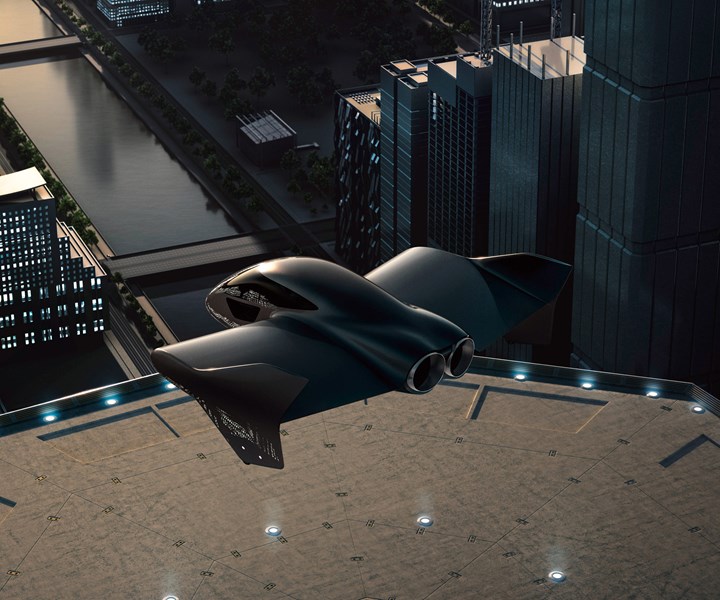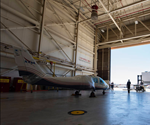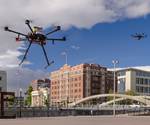Porsche, Boeing to partner for premium urban air mobility
The companies plan to study urban air mobility potential and to develop an electric vertical takeoff and landing (eVTOL) vehicle concept.

Source | Porsche
Porsche (Stuttgart, Germany) and Boeing (Chicago, Ill., U.S.) have signed a Memorandum of Understanding to explore the premium urban air mobility market and the extension of urban traffic into airspace. As part of the partnership, the companies will create an international team to address various aspects of urban air mobility, including analysis of the market potential for premium vehicles and possible use cases.
Boeing, Porsche and Aurora Flight Sciences, a subsidiary of Boeing, are developing a concept for a fully-electric vertical takeoff and landing (eVTOL) vehicle. Engineers from both companies, as well as Porsche subsidiaries Porsche Engineering Services GmbH and Studio F.A. Porsche, will implement and test a prototype.
“Porsche is looking to enhance its scope as a sports car manufacturer by becoming a leading brand for premium mobility. In the longer term, this could mean moving into the third dimension of travel,” says Detlev von Platen, member of the executive board for sales and marketing at Porsche AG. “We are combining the strengths of two leading global companies to address a potential key market segment of the future.”
“This collaboration builds on our efforts to develop a safe and efficient new mobility ecosystem, and provides an opportunity to investigate the development of a premium urban air mobility vehicle with a leading automotive brand,” says Steve Nordlund, vice president and general manager of Boeing NeXt, an organization that envisions a next-generation mobility ecosystem in which autonomous and piloted vehicles can safely coexist. “Porsche and Boeing together bring precision engineering, style and innovation to accelerate urban air mobility worldwide.”
A 2018 study by Porsche Consulting forecasts that the urban air mobility market will pick up speed after 2025. The study also indicates that urban air mobility solutions will transport passengers more quickly and efficiently than current conventional means of terrestrial transport, at a lower cost and with greater flexibility.
Related Content
-
“Structured air” TPS safeguards composite structures
Powered by an 85% air/15% pure polyimide aerogel, Blueshift’s novel material system protects structures during transient thermal events from -200°C to beyond 2400°C for rockets, battery boxes and more.
-
Cryo-compressed hydrogen, the best solution for storage and refueling stations?
Cryomotive’s CRYOGAS solution claims the highest storage density, lowest refueling cost and widest operating range without H2 losses while using one-fifth the carbon fiber required in compressed gas tanks.
-
Infinite Composites: Type V tanks for space, hydrogen, automotive and more
After a decade of proving its linerless, weight-saving composite tanks with NASA and more than 30 aerospace companies, this CryoSphere pioneer is scaling for growth in commercial space and sustainable transportation on Earth.

.jpg;width=70;height=70;mode=crop)














